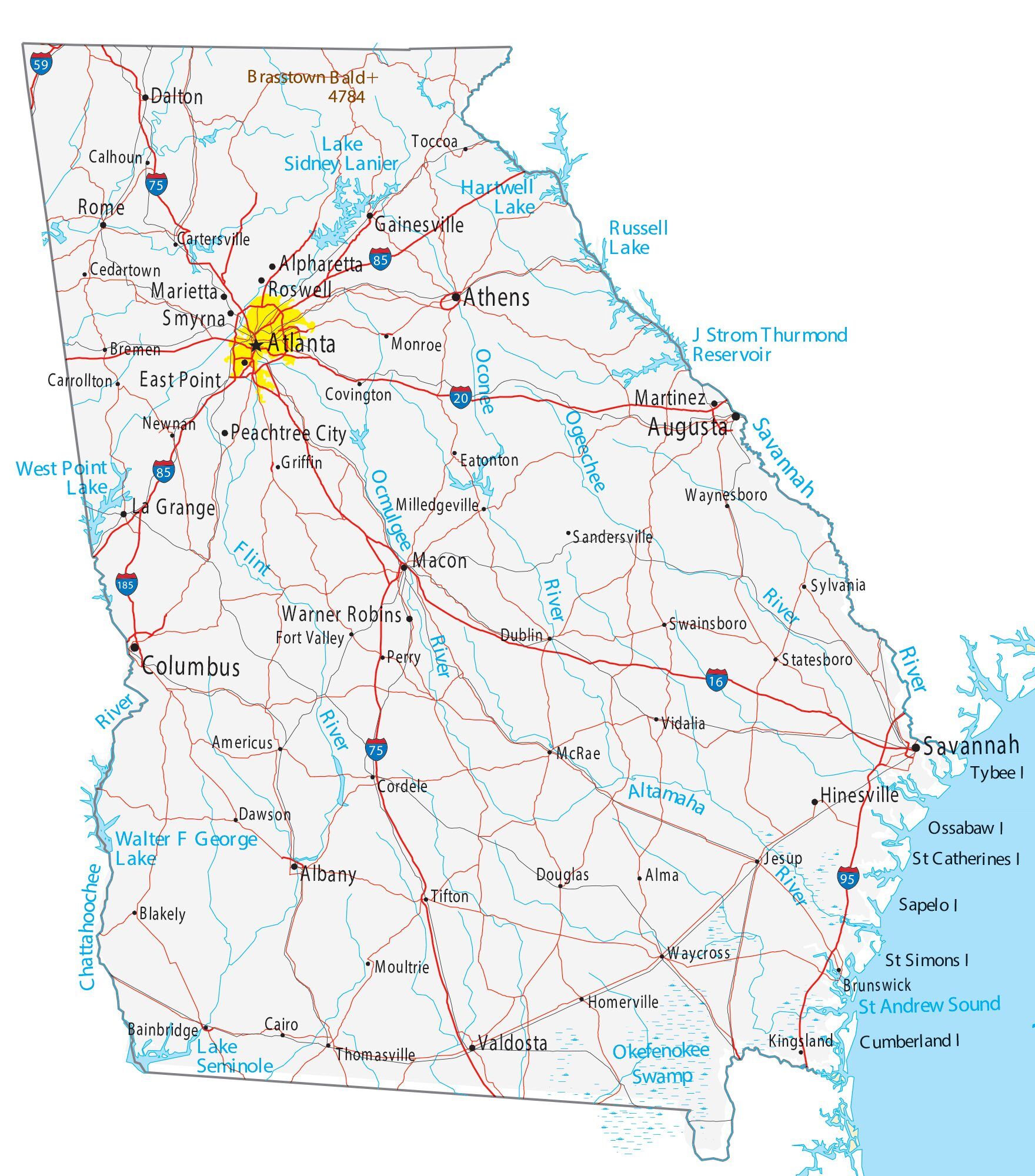Understanding Georgia septic tank laws is crucial for homeowners and businesses to comply with local regulations and environmental guidelines. Whether you’re planning a new installation, regular maintenance, or wastewater management, knowing the state requirements ensures compliance with legal, environmental, and public health standards. This article outlines essential information about Georgia septic tank regulations, including installation permits, wastewater disposal, compliance guidelines, costs, and local resources.
Table of Content
- State-Specific Regulations Information
- Compliance Information
- Cost Information
- Local Resources & Contact Information
- Certified Septic Service Companies
- Contact
- Supportive Resources
- FAQs About Georgia Septic Tank Laws
- Septifix
- Septic Permit Links by State
State-Specific Regulations Information
Installation Permits
In Georgia, permits are necessary for installing a new septic system. The Georgia Environmental Protection Division oversees the permitting process to ensure installations meet state health and environmental standards. To install a septic system, homeowners and professionals must obtain a permit from the local health department or county office.
The costs for Georgia septic system permits can vary depending on factors like location and system size. Typically, permit fees range between $200 and $500. It’s recommended to contact your local health department or environmental agency directly to get an exact quote tailored to your specific project. The permit application process usually involves submitting detailed plans, system diagrams, and soil tests.
Obtaining the permit ensures that your system installation follows Georgia wastewater management laws and environmental protection guidelines.
Septic Tank Size and Placement
The size and placement of your septic tank are regulated by Georgia septic system requirements to prevent environmental hazards and public health issues. Georgia regulations typically require septic tank sizes to be based on the number of bedrooms in your home and daily wastewater usage.
- For a 3-bedroom house, a 1,000-gallon tank is generally the standard size.
- The placement of your drain field also follows specific guidelines to maintain environmental protection. Drain fields should be situated at a safe distance from water sources, wells, and property lines.
Proper placement prevents contamination of local water resources and ensures long-term system efficiency. Be sure to work with a certified septic installer familiar with Georgia health department rules and local environmental regulations.
Wastewater Disposal
Wastewater disposal in Georgia is strictly regulated to protect public health and environmental integrity. Georgia wastewater management laws stipulate that wastewater must be properly treated and disposed of through licensed septic systems. Disposing of wastewater improperly could result in contamination of nearby soil, groundwater, and water sources.
Licensed septic service providers must follow these disposal guidelines to ensure compliance with Georgia environmental guidelines. Regular inspections and adherence to wastewater disposal standards help maintain community health and environmental safety.
Compliance Information
Potential Fines and Penalties
Not following Georgia septic tank regulations can result in significant penalties. These consequences are in place to ensure adherence to Georgia wastewater management laws and protect environmental resources.
- Fines: Homeowners and contractors may face fines ranging from $500 to $2,000 for non-compliance.
- Legal Action: Severe violations can result in legal action, which may include remediation costs and penalties.
- Septic System Revocation: In some cases, systems that do not meet state guidelines may be required to be dismantled and rebuilt according to proper standards.
These penalties highlight the importance of working with certified septic service professionals familiar with Georgia health department rules and regulations.
Environmental Protections Unique to Georgia
Georgia has specific environmental protections that go beyond septic tank regulations. These measures are aimed at preserving natural resources, maintaining clean water sources, and protecting public health.
- Soil Protection Requirements: Regulations ensure that installations do not compromise soil quality.
- Proximity Restrictions: Septic tanks and drain fields must be placed a certain distance away from wells, streams, and lakes to prevent contamination.
- State Environmental Guidelines: Georgia’s wastewater disposal and treatment guidelines focus on protecting local ecosystems and minimizing pollution.
By following these guidelines, homeowners contribute to a sustainable community environment and comply with Georgia environmental guidelines.
Cost Information
Typical Costs for Septic Installation in Georgia
The cost of installing a septic system in Georgia depends on factors such as system size, soil type, and installation complexity. On average:
- A basic 1,000-gallon system installation can cost $2,500 to $6,000.
- Costs may increase for larger tanks or more complex installations.
- Professional labor and permit fees are additional costs that homeowners should factor into their budget.
Permit Fees
Permit costs vary by county but generally fall within $200 to $500. These fees cover the administrative process of permit approval and compliance checks.
Pumping Costs
Regular pumping and maintenance are crucial to keeping a septic system in good working condition. In Georgia, pumping services typically cost between $300 and $600, depending on tank size and location. Scheduling routine maintenance every 3 to 5 years can extend the life of your system and reduce the need for costly repairs.
Maintenance Estimates
Ongoing maintenance costs include:
- Inspection Costs: Approximately $150 to $300.
- Minor Repairs: Depending on the issue, minor repairs can range from $200 to $500.
- System Replacement: In cases of system failure, replacement costs may exceed $10,000.
By adhering to recommended pumping schedules and maintenance requirements, homeowners can prevent major septic system issues and costly replacements.
Local Resources & Contact Information
State Agencies Responsible for Septic Systems
In Georgia, several local and state agencies oversee septic system regulations:
- Georgia Environmental Protection Division: Responsible for maintaining environmental compliance across the state.
- Georgia Department of Public Health: Handles septic permits, installations, and inspections through local health departments.
To get accurate and up-to-date information, contact your local health department office or Georgia Environmental Protection Division representatives.
Environmental Protection and Health Department Websites
- Georgia Environmental Protection Division: https://epd.georgia.gov
- Georgia Department of Public Health: https://dph.georgia.gov
These websites provide downloadable guides, resources, and updates on Georgia septic system regulations.
Certified Septic Service Companies
Homeowners can also contact local, certified septic service providers. These companies handle installations, inspections, and routine maintenance. Look for professionals with licenses issued by the Georgia Department of Public Health.
Contact
Georgia Department of Public Health
200 Piedmont Avenue, SE
Atlanta, GA 30334 US
Supportive Resources
Government Health Departments and Environmental Agencies
- Georgia Department of Environmental Protection
- Georgia Health Department websites offer guidelines, downloadable handbooks, and FAQs about septic installation, maintenance, and wastewater disposal.
Guides and Infographics
Various online and downloadable resources, like handbooks and infographics, are available to assist homeowners with the basics of septic system maintenance, installation steps, and troubleshooting common issues.
Understanding Georgia septic tank laws ensures compliance with state regulations, protects environmental resources, and promotes public health. From installation permits and tank placement guidelines to wastewater disposal and environmental protections, every step plays a role in maintaining a compliant and functional septic system. Homeowners are encouraged to work closely with certified septic service professionals and local environmental departments to adhere to Georgia environmental guidelines and health regulations. Investing time and resources into proper septic system maintenance not only saves money but also preserves the environment and community resources for the long run.
FAQs About Georgia Septic Tank Laws
What are the permit requirements for installing a septic system in Georgia?
To install a septic system in Georgia, homeowners must obtain a permit from their local health department or the Georgia Department of Public Health. The application involves site evaluations, soil tests, and layout plans. The costs for installation permits vary depending on the location and system complexity but typically range from $300 to $1,500.
What is the recommended size for a septic tank in Georgia?
The size of the septic tank depends on household size and wastewater usage. Generally, Georgia regulations recommend a 1,000-gallon tank for a household of four. However, larger households or significant wastewater activities may require larger tanks. Drain field placement must comply with local soil and environmental assessments to prevent contamination risks.
Are there specific wastewater disposal regulations in Georgia?
Georgia wastewater laws emphasize proper disposal to protect surface and groundwater. Wastewater disposal should follow the guidelines set by the Georgia Department of Environmental Health. Discharging untreated wastewater is strictly prohibited. Septic systems should follow approved layouts and placement instructions to ensure environmental protection and public health.
How often should a septic tank be pumped in Georgia?
Homeowners should schedule a septic tank pumping every 3 to 5 years in Georgia, depending on usage and household size. Regular pumping prevents overflow and contamination risks. Georgia health departments often recommend inspections alongside pumping services to ensure system longevity and compliance with state regulations.
What are the penalties for non-compliance with Georgia septic system regulations?
Failing to comply with Georgia septic tank regulations can result in fines ranging from $500 to $2,000. Non-compliance also includes penalties for improper installations, failing to secure permits, or not following wastewater disposal guidelines. Environmental violations may be subject to stricter penalties to maintain compliance with Georgia environmental protection laws.
Does Georgia have any specific environmental guidelines for septic installations?
Yes, Georgia’s environmental guidelines, enforced by the Georgia Department of Environmental Health, focus on safeguarding surface and groundwater quality. These guidelines require homeowners and contractors to follow site evaluations, soil testing protocols, and layout plans to prevent contamination and uphold environmental safety.
Where can I find certified septic system installers in Georgia?
Local health departments maintain a list of certified septic system professionals who comply with Georgia health department regulations. Additionally, websites like the Georgia Department of Public Health and trusted environmental protection groups offer directories of state-certified septic service companies.
Are there any wastewater management guidelines unique to Georgia?
Georgia’s wastewater management guidelines prioritize environmental protection and public health. Homeowners must follow strict regulations that include wastewater disposal layouts, system inspections, and adherence to approved installation plans. Wastewater discharges must comply with state wastewater disposal protocols to protect local water resources.
What are the average costs associated with septic installation and maintenance in Georgia?
For a new septic installation, costs typically range from $5,000 to $10,000, depending on soil evaluation results and system complexity. Permit fees for installing a septic system can vary, with average costs between $300 and $1,500. Regular pumping services usually cost around $300 to $600, based on tank size and service location.
How can I contact the Georgia Department of Environmental Health for septic inquiries?
The Georgia Department of Environmental Health operates local health departments across counties. You can contact your local environmental health office for permits, inspections, and compliance evaluations. Official resources include websites like coastalhealthdistrict.org, where necessary forms and contact information for regional offices are available Georgia Coastal Health District.
DIY Repairs Are Always Cheaper
Septic Regulations in Rural Areas: Essential Guide for Rural Property Owners
The Role of Perforated Pipes in Drain Fields
What Happens During a Pumping Service?
Septic Tanks vs. Sewer Systems | Choosing the Right Option
Directory | Virginia Septic Service Providers | Part 2
Directory | Virginia Septic Service Providers : Best Professionals | Part 1
Septic Treatments for Odor Control: Best Methods for Eliminating Unpleasant Smells
Septifix









